Kigali, Rwanda, is one of Africa’s top cities for transportation innovation. For three days in October, Trufi facilitated the Smart Mobility Lab Hackathon, which brought together students, tech enthusiasts, and sustainability advocates to tackle urban mobility challenges.
Organized by a consortium of partners — including Trufi Association, Smart City Hub Rwanda, Digital Transformation Center Rwanda, Carnegie Mellon University Africa, GIZ Rwanda, and others — the hackathon aimed to develop impactful solutions to improve transportation in Rwanda’s capital.
Videos from the Hackathon
Videos by Smart City Hub Rwanda
Local Innovation from Transport Users
The hackathon participants were given a set of challenges, ranging from optimizing public transit routes to improving accident reporting. Representing Trufi Association, Denis Paz Jiménez and Eva Asturizaga were on-site as facilitators and judges, guiding the participants and sharing their expertise.
Both Denis and Eva highlighted the unique role that the local context played in shaping the ideas generated during the event. “To me, the most important thing was that many of the students chose the challenge that came directly from the City of Kigali,” said Denis. “This shows that they really want to help where it matters.”
Eva noted how the hackathon bridged participants’ everyday challenges with public transport to tangible solutions. “Almost all students shared some form of frustration with public transportation,” she said, “but they hadn’t really connected it with their technical skills. It was fantastic to see their enthusiasm for tackling this topic.”
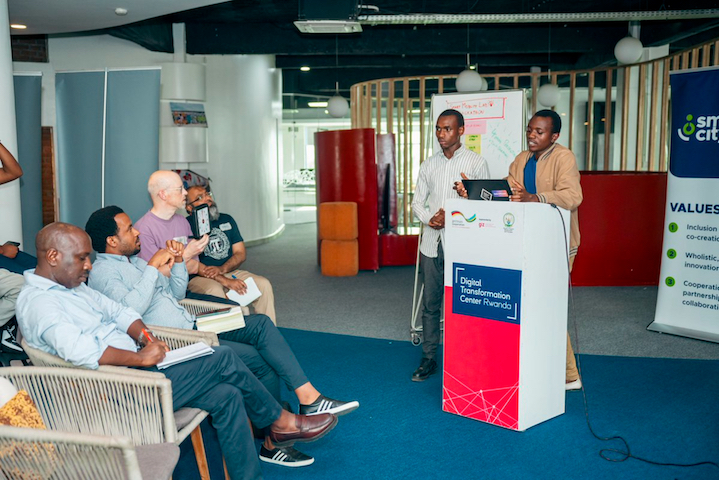
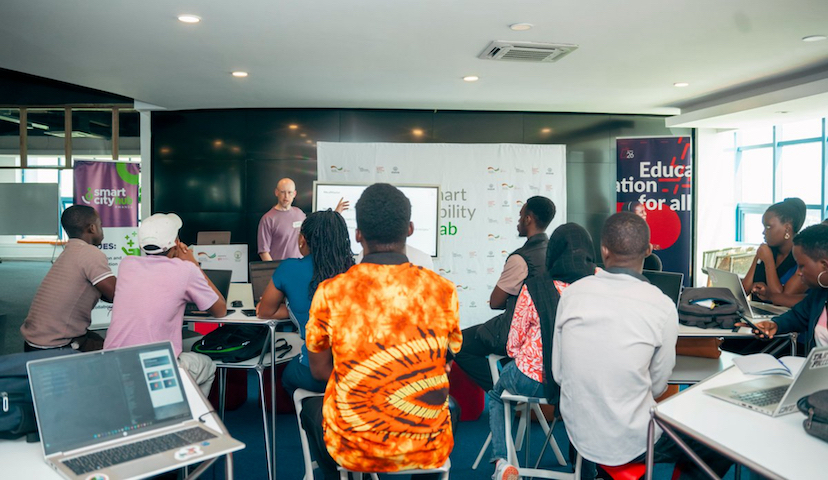
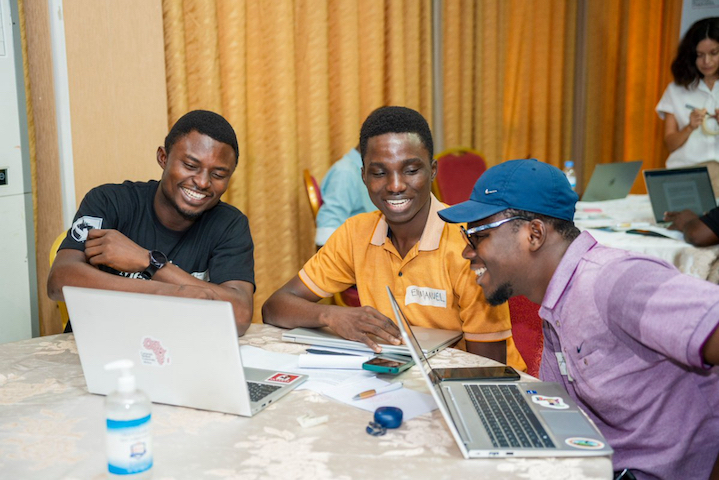
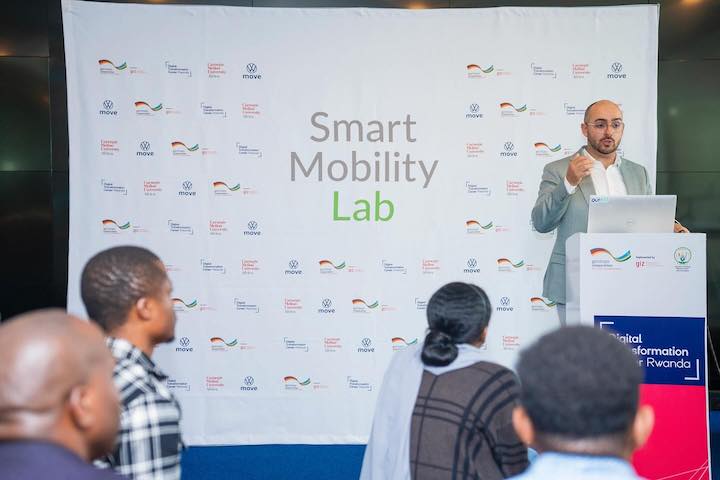
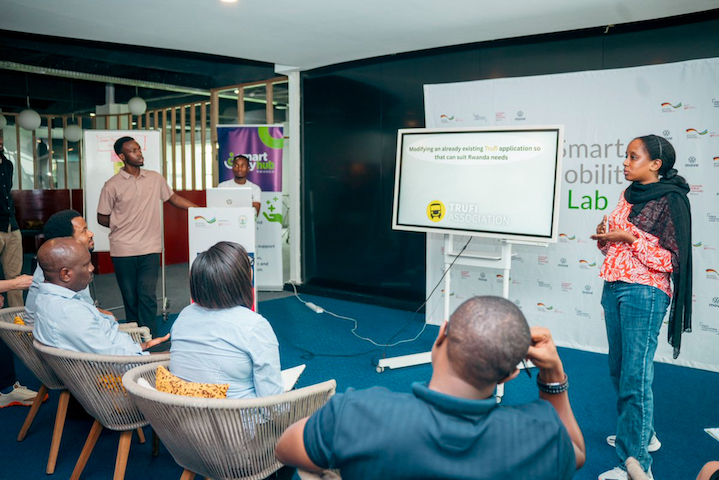
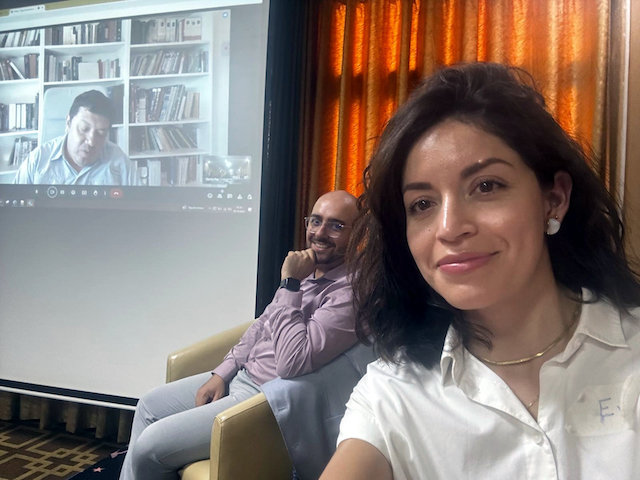

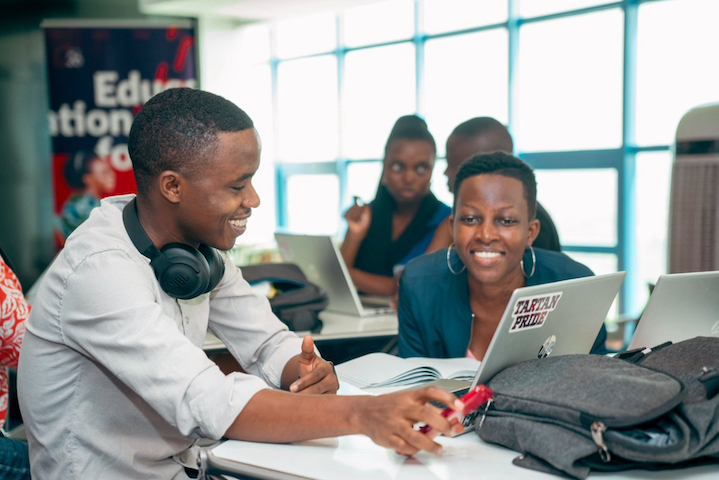
Trufi’s Technical Backbone
Trufi provided the teams with essential tools, technical resources, and advice. Participants accessed Trufi’s open-source codebase, including stadtnavi, our multimodal app designed for German cities with diverse mobility services, and Trufi Core, the foundation for all our journey planner apps. With these resources, the teams were able to set up the user interface and experiment with new functionalities.
We also provided backend support, complete with routing capabilities, local data on Kigali’s 60 official routes, and log data from Trufi’s app in Cochabamba, Bolivia.
“We provided the code basis of Trufi apps stadtnavi and Trufi Core for the students to set up a basic version of the UI on their machines and try out new things,” Denis explained. “Additionally, we provided a backend so the students could generate routes and also some local data on the 60 official routes in Kigali and the log data from our app in Cochabamba.” Access to these resources allowed the participants to quickly prototype and refine their ideas.
Eva noted that the participants were intrigued by Trufi’s mission. “The group that worked on the Trufi challenge was very curious about our organization’s mission and background,” she said. “They weren’t shy on asking all the questions that came to mind, and I was happy to be able to share some insights as well as my passion for improving access to public transportation.”
The Hackathon Winners
The hackathon concluded with final presentations, and the judges were expressed that they were impressed by the creativity and dedication demonstrated by all teams.
The top three winning solutions stood out, showing promise for advancing sustainable mobility in Kigali:
- First Place: Commute Ease – This team tackled traffic flow optimization with a solution that provides real-time monitoring and predictive analytics to help commuters avoid congestion. By delivering up-to-date traffic information, Commute Ease aims to reduce delays and improve the overall travel experience.
- Second Place: Green Commute – Green Commute’s app focuses on optimizing public transit by providing users with real-time updates on bus wait times and optimal route suggestions to avoid traffic jams. This solution addresses a pressing need in Kigali, where commuters often face delays due to unpredictable bus schedules.
- Third Place: VolksSafe – VolksSafe created an accident reporting tool that digitizes and streamlines the process of accident reporting to emergency responders and traffic authorities. The goal is to improve response times and enhance road safety by providing a direct channel for commuters to report incidents quickly.
All three solutions stood out in terms of feasibility and immediate impact, Eva noted, adding that the solutions are especially relevant for Kigali’s urban mobility landscape.
Next Steps for the Winners
Trufi envisions further collaboration with the winning teams to help realize their ideas into reality. “All three winning teams will get access to the Digital Transformation Center,” which is managed by GIZ,” said Denis. This environment will enable them continue “working on the challenges in an environment that fosters innovation.”
Denis expressed excitement about integrating some of the ideas into Trufi’s app roadmap for Kigali. “I personally think that the accident management tool can be quite beneficial to integrate in the app,” providing an easy way to report accidents.
Eva also saw potential in a team’s idea to implement bus crowding indicators using sensors or driver-managed inputs, a feature that could empower commuters to make informed decisions based on bus capacity.
The Impact of the Hackathon
The Smart Mobility Lab Hackathon not only empowered young innovators but also underscored the importance of sustainable mobility in urban development. For Trufi, the event was an inspiring display of community-driven problem-solving. Denis and Eva both emphasized how the hackathon participants’ creativity and dedication underscore Kigali’s status as a leader in smart urban mobility in Africa.
Through our partnerships and by supporting local talent, Trufi Association advances digital solutions that make public transportation more accessible, reliable, and efficient. Trufi looks forward to seeing their ideas evolve into lasting contributions to Kigali’s mobility ecosystem.
Correction (November 7, 2024): An earlier version of this post incorrectly stated that the solutions were “AI-driven.” The reference to Artificial Intelligence (AI) has been removed. Although one hackathon contestant proposed an AI-based solution, that team was not among the winners.

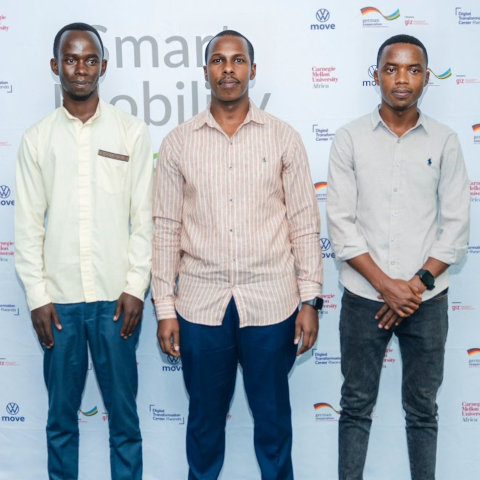
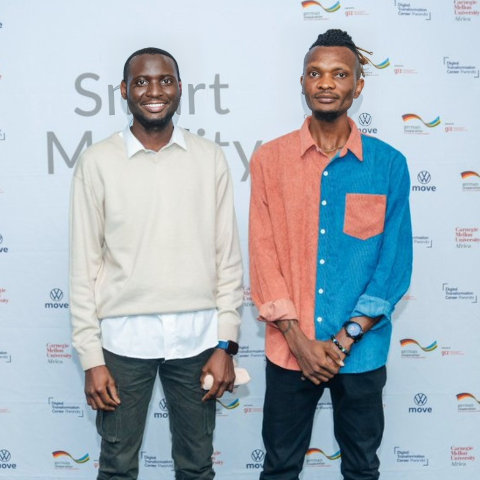
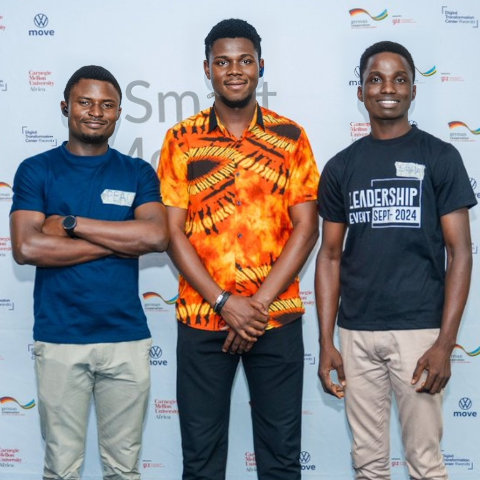
Pingback: weeklyOSM 746 – weekly – semanario – hebdo – 週刊 – týdeník – Wochennotiz – 주간 – tygodnik